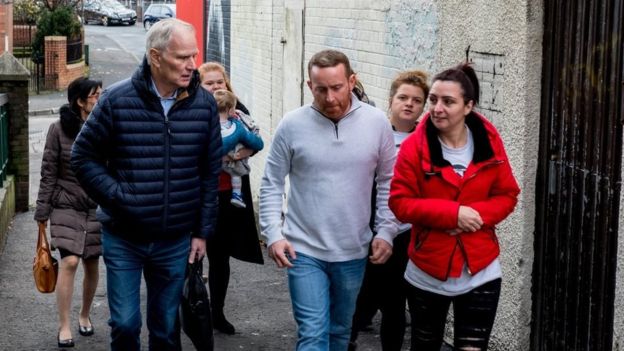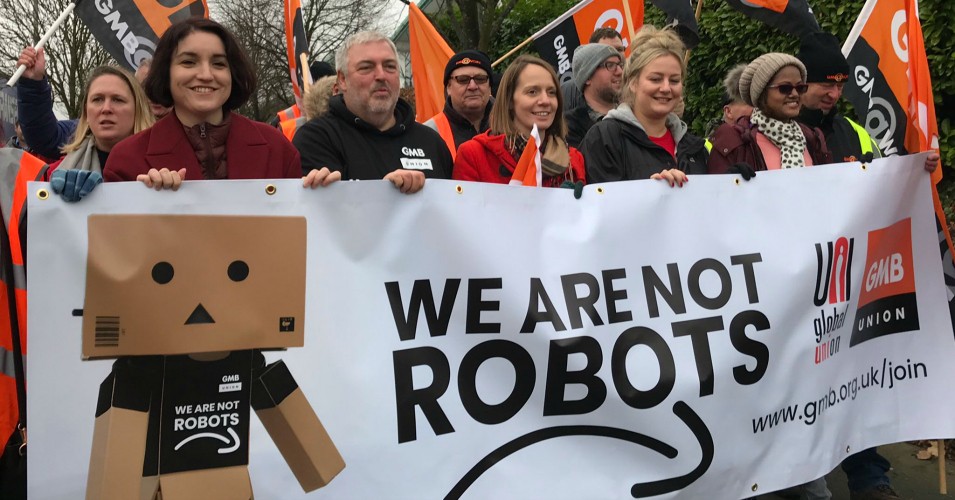Talking Points: November 2018
Posted on 05 Dec 2018 Categories: Blog, From Rethinking Poverty, Talking Points
by Rethinking Poverty
The UN report on poverty in the UK …
The big event in the area of poverty this month has to be Philip Alston’s damning report on poverty in the UK. Poverty is inflicting ‘great misery’ on UK citizens, says the UN rapporteur on poverty and human rights. In the UK, ‘poverty is a political choice’, according to his report. ‘Austerity could easily have spared the poor, if the political will had existed to do so.’ Alston told a press conference in London that Britain was in breach of four UN human rights agreements relating to women, children, disabled people and economic and social rights – a damning epitaph for austerity.

… echoed by new EHRC report
These findings have since been echoed in a new report by the Equality and Human Rights Commission (EHRC), published on 28 November, which found that ‘the poorest 20% of people in England lost an average of 11% of their incomes as a result of austerity, compared with zero losses for the top fifth of households’. ‘The decision to load austerity cuts excessively on to vulnerable groups contravenes the non-discrimination principles to which the UK is signed up under international human rights law,’ the report said.
Shirkers and strivers?
The 29 October budget was hailed by the government as the end of austerity – or at least the beginning of the end. It took an important step forward in addressing ‘a burning injustice – the rise of poverty among working families’, says JRF chief executive Campbell Robb. But what about those without jobs? Working people don’t ‘deserve’ more help than those without jobs, say Stephen Crossley, Kayleigh Garthwaite and Ruth Patrick. ‘Philip Hammond’s budget helped so-called hardworking families. But the [so-called] undeserving poor are left out in the cold.’
A Northern Soul
Raising this issue is not to question the misery and hopelessness caused by in-work poverty, as searingly depicted in Sean McAllister’s film A Northern Soul, shown on BBC2 on 18 November. The film tells the story of Hull warehouseman Steve Arnott and his Beats Bus and his extraordinary efforts to bring hip-hop music to children living in the city’s most deprived estates. As we state in our review, ‘against all the odds, Steve is a leader who can transform his own life and the lives of others’.
A four-day week?
Low pay is not the only problem with many jobs – though it is the most obvious and the most pressing. Much has been written in November about the need to reduce the hours people in the UK work. Following on from his article making the case for ‘a new politics of time’, Aidan Harper sets out five reasons why NEF supports the 4 Day Week Campaign. Reducing the hours we work can help future-proof the economy and the environment, he writes.
In the meantime shadow chancellor John McDonnell has been working with economist Lord Skidelsky on the ‘practical possibilities of reducing the working week’ and shaping the Labour case for a four-day week. ‘Britain is chronically overworked. A four-day week would liberate us,’ says Owen Jones.
On Black Friday Amazon staff launched protests over ‘inhuman’ working conditions, while workers in Germany, Spain and France walked off the job at fulfilment centres. Despite Amazon claims that all their sites are safe places to work, the GMB discovered earlier this year that ambulances have been called out 600 times to 14 Amazon warehouses in the UK over the past three years.

Radical economics needed
Nothing could be more needed than a radical new economics system, so the Institute for Public Policy Research’s (IPPR’s) newly announced £150,000 prize fund ‘to uncover fresh ideas’ could not be more welcome. Sadly the focus is on boosting economic growth to reinvigorate the British economy rather than finding a genuinely new approach that is sustainable into the future – so not radical enough.
Where will the new ideas come from – a Talking Points refrain. Commenting on John McDonnell’s proposals for transforming the UK economy, Aditya Chakrabortty notes that the civil society that helped previous generations of Labour politicians generate new ideas is much thinner now. Many of the other institutions that could foster alternative visions of society, from the unions to even the BBC, are in decline.
What about an economics of happiness?
Modern societies have taken a ‘fundamentally wrong turn’, believes Local Futures, consistently pushing us ‘in the direction of ever more growth, while ignoring the ecological destruction and spiritual poverty that have been the price of rampant consumerism, massive scale, and escalating speed’. They suggest a ‘radically different paradigm’: an ‘economics of happiness’.
Finally, a call for kindness …
A new report from Carnegie Fellow Julia Unwin, Kindness, emotions and human relationships: The blind spot in public policy, calls for a new social contract that recognises that public services are always about relationships and emotions. This links strongly with the concept of good help – ‘help that supports people to feel hopeful, identify their own purpose and confidently take action’. Following publication of a report by NESTA/OSCA on good and bad help, the good help community was launched earlier this year.
… and a narrative of hope
Liberals must learn the politics of emotion to beat rightwing populists, says Paul Mason. ‘If you can’t answer the question: “How does life get rapidly better for me and my family?” no amount of communicative power will help.’
‘Talking Points’ is collated by Caroline Hartnell, who convenes the Rethinking Poverty blog.
Past ‘Talking Points’:
Posted on 05 Dec 2018 Categories: Blog, From Rethinking Poverty, Talking Points
